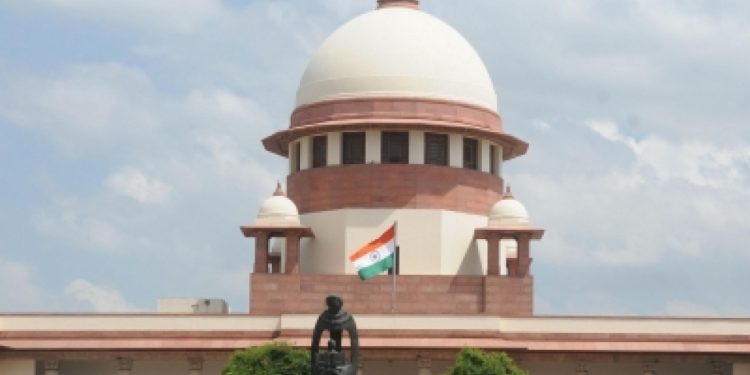New Delhi: The Supreme Court, Monday, issued a notice to Odisha government while taking up a bail application filed by Radhika Mallick, Sebastian Mallick and Tirupati Kadapa, who have been awarded life imprisonment for their involvement in a Maoist attack case in Kandhamal in 2011.
A three-judge bench of the apex court comprising Justices SK Kaul, Dinesh Maheshwari and Hrishikesh Roy heard the matter and sought the state government’s response. The bench adjourned the hearing for three weeks.
According to the petitioners, a complaint was filed by Suna Rupamajhi August 5, 2011 alleging that around 18 Maoists arrived at his house and abducted his son at gunpoint before killing him. He also named Radhika, Sebastian and Tirupati in his complaint. He said that the trio was involved in the group of Maoists.
An FIR was filed on the basis of his complaint at Kotagada police station following which the appellants were arrested. A court in Phulbani, January 31, 2015, passed a judgement in the case and sentenced the three accused to life imprisonment.
The order of Phulbani court was challenged in Orissa High Court, which dismissed the ruling January 14, 2020.
The counsel for the petitioners contended that the entire case of prosecution was based on two eye witnesses – the father and the sister of the deceased. The counsel also submitted that there are contradictions in the statement of the witnesses.
The petitioners said that police had not recovered any material related to Maoists from the petitioners’ possession. No gun or uniform was recovered by the police. The prosecution failed to prove any cogent evidence to link the petitioners with the ultras.
As per one of the witnesses in the case, there was no electricity in their village and it was dark in the evening when the incident occurred.
“So, it would be difficult to identify the accused. But witness No. 9 has clearly mentioned the name of the accused without any reasonable doubt,” reads the petition.
Petitioners prayed the apex court to grant interim bail as they belong to the economically weaker section of the society and have a family to take care of who are finding it difficult to sustain themselves in the absence of the petitioner.






































